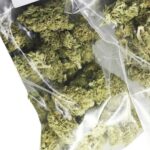Jamaica on Monday received the first batch of animals under the Government’s Small Ruminant Development Programme.
A total of 50 goats, including the Boer, Nubian and Kiko breeds, arrived at the Norman Manley International Airport in Kington and were received by Minister of Agriculture and Fisheries Pearnel Charles Jr.
Charles Jr, who was accompanied by a high-level ministry team, told journalists that the goats’ genetic superiority is intended to “change the prospect of small ruminants for our country”.
He said the 50 goats are the first batch of some 200 being brought in, with a total of 6,000 animals to be imported over the next three years.
“So, this is an enormous positive for agriculture and several benefits to our farmers, particularly the farmers who, for long, have been yearning for us to have the higher quality, the genetics that will allow for the goats to breed faster, to have greater yield in meat [and] greater yield in milk,” added Charles Jr.
He pointed out that “a number of problems” will be solved through the importation of the goats, noting that the animals will eat local materials and reduce the “difficulty of having to import feed into Jamaica”.
The goats will be housed at the ministry’s Bodles Research Station in St Catherine where a semen bank (collection of semen from imported animals with superior genetics) will also be established from the males.
According to Charles Jr, the goats’ offsprings will be sold to farmers to increase their stock and ensure that the animals are mixed with those in the country to provide the best quality possible.
“Our ultimate goal is to have resilience in our sector. The ultimate goal is to reduce the incidence of praedial larceny, and so all of these goats come already tagged and traceable. This is the kind of efficient mechanisms that we want to introduce across the sector,” said Charles Jr.
He also revealed that chief technical director in the ministry, Orville Palmer, led a team that travelled to Texas in the United States to investigate and examine the animals.
In his remarks, Palmer said small ruminants are among the safest and quickest options to substantively provide animal protein for the domestic market.
“A large part of producing protein for human consumption is the feed conversion cost. So [in] utilising these hybrid animals… we will be able to have an animal which utilises our local raw material to convert that into protein in a very efficient way. So that will ultimately serve to broaden and enhance our food security aspect of our nation,” said Palmer.
The national Small Ruminant Development programme, which was launched in 2021, is geared towards rapidly increasing the population of primarily goat and sheep.
This is in order to increase local production, productivity and quality of small ruminant meat and milk.
— JIS










